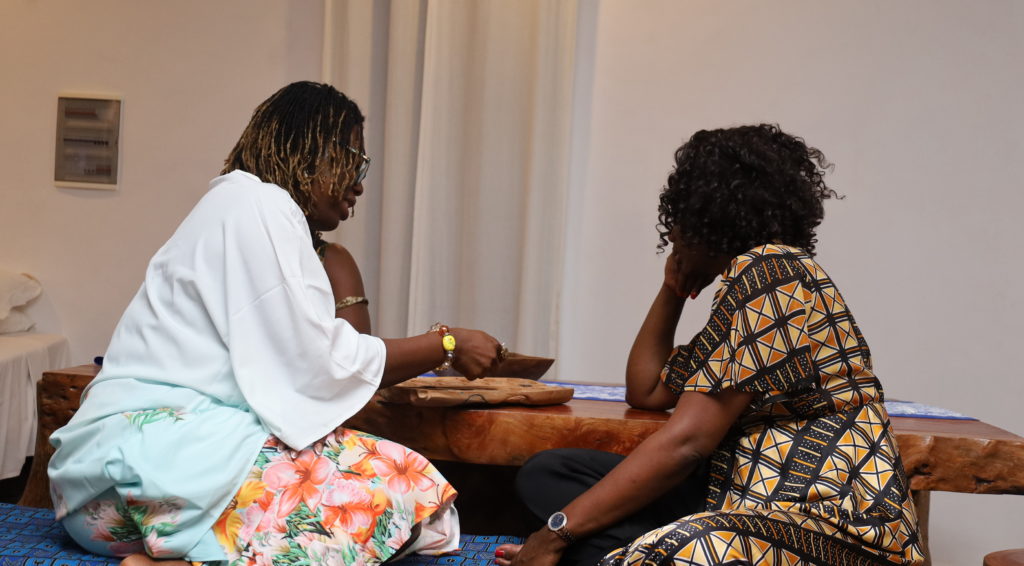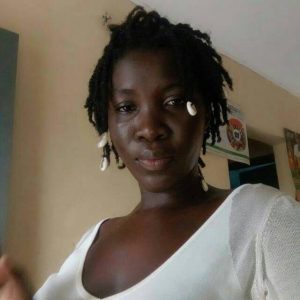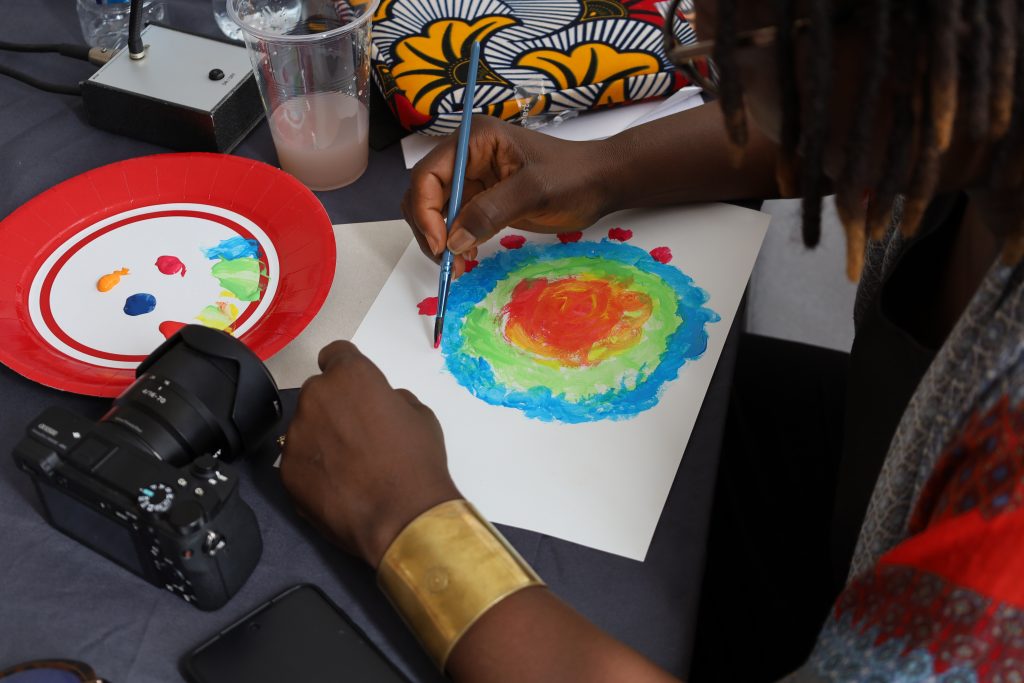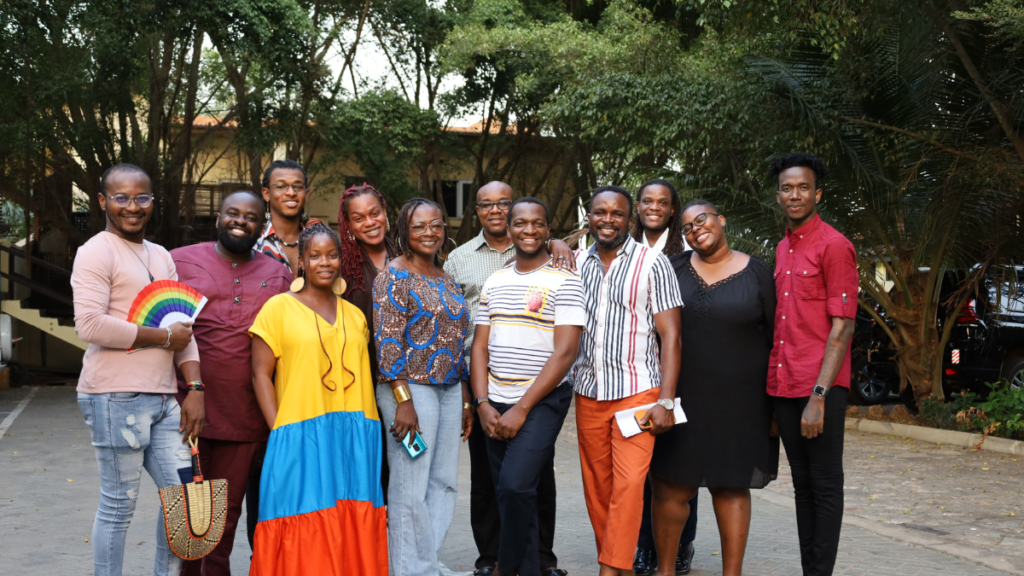
By Emma ONEKEKOU EmmaLInfoS Coordinator
I am not in any way an ambassador for the French language, a colonial language that I find myself speaking by obligation, not by choice. I would have liked to speak one of the many languages of which my West Africa is rich.
I arrived in Cape Town, South Africa to take part in the very first LBQ conference held from 06 to 09 July 2019, my first conference and I was happy to see that there was so much diversity, in terms of identity and also in terms of linguistic backgrounds.
There were French speakers, Arabic speakers, Portuguese speakers, English speakers; I even found some African languages such as Fon, Swahili, Zulu, etc. The day before the end of this conference, I was designated by a group of French-speaking activists to write a petition entitled: Linguistic Justice (see end of article). Even if this petition did not contribute to a change during this conference, we hoped and we still hope that it will make people think, especially for future LBQ conferences or other spaces for LBQ communities.

The conclusion was clear: This space was totally English-speaking.
All of the sessions we attended during the conference were in English with no translation, and the few who could do so had to whisper for a group of 10 to 12 people. In some cases, panelists refused to speak more slowly or take short breaks to allow those who could translate to do so.
We complained about this on the third day of the conference, which was marked by a boycott of the sessions due to our deep frustration.
The Conference Organization then sent us a translator for a group of 12 people who did not necessarily want to attend the same sessions.
This situation led me to ask myself questions about the place of languages, whether colonial or African, in regional and international spaces.
I began to investigate and Joe Mandeng's response to this concern made it clear to me that this is a long-standing issue: "I have had the opportunity to attend several HIV conferences, including ICASA, IAS, and it was only English that was spoken in all the rooms. If you are a French speaker without any knowledge of English, it is difficult or impossible to follow. And even in Côte d'Ivoire, a French-speaking country where ICASA was held, it was the same problem. What an aberration!
Another activist from Mali who has also faced this same problem thinks that it may be due to the budget: "There are probably not enough funds to have all the necessary translations. However, it should be noted that translations even in large venues do not fill the need.
Can we therefore take the problem of budget as a hindrance when a few months before the conference in Cape Town and ICASA, the CFCS ofUHAI-EASHRI which is a major conference bringing together the whole of the African LGBTQI, the African Diaspora and international donors is not done in several languages? Including Swahili and Portuguese?
A few months after the LBQ conference, I was confronted with this problem again. Urgent Action Fund Africa hosted a major webinar on November 14, 2019 at 2pm. The theme was: Where's the Money for Women's Rights Work?
I received the invitation on 11 November 2019. I rushed to be present but it was impossible for me to participate because no translation was provided for French speakers yet I know well that UAF-Africa has French speaking beneficiaries and there was not another webinar of this nature scheduled in other languages.
So is it a lack of will? A budget problem? Or is it because there is no interest in the Francophone movement?
We cannot complain about a dominant patriarchal system that we are fighting and continue to reproduce this domination and exclusion in our activist movements. It's a question of consistency! English is certainly a widely spoken language in the world, the language of business and international exchange, but Africa is rich with many other languages such as French, Arabic and Portuguese. We also need to think about how to integrate our native languages such as Bambara, Wolof, Haussa, Fulfulde, Twi, Swahili, Lingala, Mooré, etc. others because by forgetting them, we create another linguistic injustice. Because it is a reality: many activists only speak local languages.
In our struggles for justice and freedom, how can we make the voices of our most silent communities heard without giving them the opportunity to speak and be heard in the language they are comfortable with?
Language justice and inclusion matters!
For language justice
To the organizers of the LBQ conference
Since our arrival, we have requested access to the translated documents and have been assured that this would be done. But we regret to say that none of our requests have been taken into account. We had to leave a panel in which we were very interested because we could not understand a word that was being said. As a solution, we brought an interpreter with us and members of the conference also volunteered to help us with interpretation and translation.
However, they do not have enough time to devote to these tasks, even after the interpreters ask us to speak more slowly and accommodate. We also had to ask interpreters to whisper translations several times for a group of 10 or 12 people. This is too large a group for one translator to successfully translate. Yet, when a French-speaking activist spoke, his speech was untimely interrupted to allow successive translations out loud for the benefit of the English-speaking groups. Despite our countless reminders of this need, nothing was done and the response, always the same: "It is not possible to have the requested information in French."
Also, we would like to remind you that many of us speak French, Portuguese, Arabic, Spanish, Ukrainian and other languages as a result of colonization. We therefore believe that the English language should not be imposed on us or presented as a barrier in this context of exchange and sharing where feminist principles are embodied.
Principles such as equality between identities must also be situated at the level of languages.
So we come to denounce, through this article, all these inequalities that we find horrible and damaging in a space that is supposed to heal us, to transform us.
Cape Town on July 08, 2019

